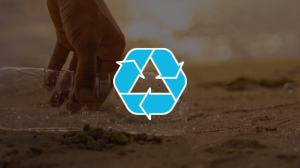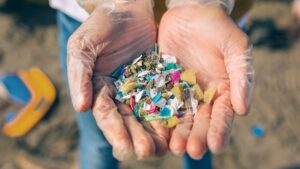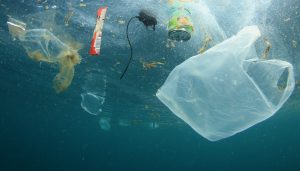Report slams corporate inaction on plastic pollution
The largest companies are far too slow in adopting responsive actions and promoting reusability, recyclability, or compostability in their packaging, and are failing to shift away from wasteful packaging and toward circular models that prioritize absolute reduction.
This is the key finding in the newly released report Waste & Opportunity 2020: Searching for Corporate Leadership, in which advocacy group As You Sow analyzed the actions, or inaction, of 50 of the largest U.S. consumer-facing companies to reduce plastic pollution.
Out of the 50 companies in the beverage, quick-service restaurant, consumer packaged goods, and retail sectors, the highest grade was a B- for Unilever. Twelve companies received C grades, 22 received D grades, and 15 received F grades.
The six lowest ranked companies by size of revenue were Walmart, Kroger, PepsiCo, Tyson Foods, Kraft Heinz, and Mondelēz International. The high number of poor and failing grades reflects a lack of basic goal setting, strategy, and planning which must be developed to effectively address the plastic pollution crisis.
Plastic production is set to quadruple by 2050, yet only 14 percent of plastic packaging is recycled globally, and just 13 percent is recycled in the U.S.
“Companies have an absolute responsibility to reduce plastic pollution,” said Conrad MacKerron, As You Sow’s senior vice-president and lead author of the report.
“This report shows that the consumer goods industry is failing to address single-use plastics and take financial responsibility to improve recycling. We were unable to identify leadership companies, but rather found scattered leadership actions.”
Company actions were analyzed and graded on six pillars businesses must implement to address the plastics crisis: packaging design, reusable packaging, recycled content, data disclosure, voluntary support for improving recycling systems, and mandated financial responsibility to improve those systems.
These results indicate that companies have a long way to go to transition from single-use plastics to reusable alternatives, take financial responsibility to fix the U.S. recycling system to dramatically increase recycling yields, and deliver a more circular plastics economy.
“There’s a massive amount of work to be done,” said MacKerron. “This report provides a blueprint for what companies need to do to take responsibility for their plastic waste and move us to a circular economy for consumer packaging.”



